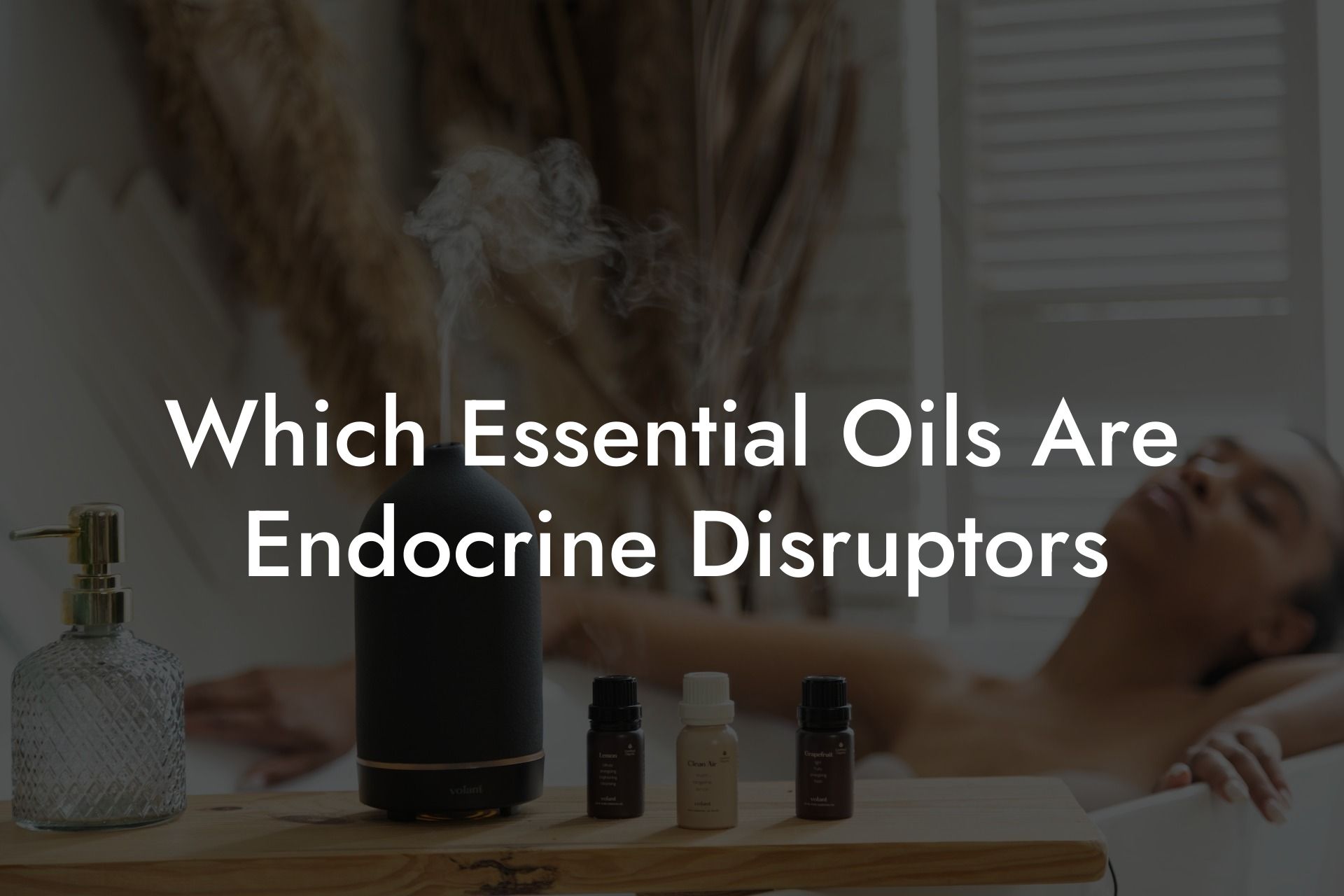Endocrine disruptors are substances that can interfere with the normal functioning of the endocrine system, potentially leading to adverse health effects. Did you know that some essential oils can also have endocrine-disrupting properties? In this article, we will explore the essential oils that have been shown to have endocrine-disrupting effects, why it’s essential to be aware of them, and how to safely incorporate essential oils into your daily life.
Table of Contents
What are Endocrine Disruptors and Why Should We Be Concerned?
Endocrine disruptors are chemicals that can interfere with the normal functioning of the hormone system in both humans and wildlife. These chemicals can mimic hormones, block hormone receptors, or alter hormone production and metabolism, potentially leading to adverse health effects. The endocrine system regulates a vast array of physiological processes, including growth and development, metabolism, reproduction, and stress response.
Exposure to endocrine disruptors has been associated with various health issues, including reproductive disorders, developmental defects, immune system dysfunction, and an increased risk of cancer. Thus, it’s essential to be aware of potential endocrine disruptors in our environment and make informed choices to minimize exposure.
Essential Oils as Endocrine Disruptors
Essential oils are concentrated plant extracts used for a wide range of health and wellness applications. They are generally regarded as safe when used appropriately, but some essential oils have been found to possess endocrine-disrupting properties.
Below is a list of essential oils that have been shown to have endocrine-disrupting effects:
Lavender and Tea Tree Oils
In 2007, a study published in the New England Journal of Medicine reported that lavender and tea tree oils may have estrogenic and anti-androgenic properties, potentially contributing to the development of gynecomastia, or swollen breast tissue, in young boys. The authors identified eight chemicals in these essential oils, including eucalyptol, linalyl acetate, and linalool, which appeared to interfere with hormone signaling pathways.
Fennel Oil
Fennel essential oil contains a compound called anethole, which has been shown to have estrogen-like effects in animal studies. While moderate consumption of fennel is generally safe, excessive use or using highly concentrated fennel oil products can potentially stimulate estrogen-sensitive tissues, potentially disrupting hormone balance and increasing the risk of hormone-related issues.
Clary Sage Oil
Clary sage essential oil has been reported to exert estrogen-like effects due to the presence of a compound called sclareol. While clary sage oil is often used to balance hormones and alleviate menstrual discomfort, it should be used cautiously in individuals with hormone-sensitive conditions.
Safe Use of Essential Oils
Although certain essential oils may have endocrine-disrupting properties, using them safely and in moderation can still provide many health and wellness benefits. To reduce the risk of endocrine disruption, consider the following guidelines:
- Opt for high-quality essential oils from reputable brands.
- Use essential oils sparingly and in diluted forms, such as in carrier oils or creams.
- Seek guidance from an experienced aromatherapist, especially if you’re new to essential oils.
- Avoid using essential oils with known endocrine-disrupting effects if you have hormone-sensitive conditions or are pregnant or breastfeeding.
Which Essential Oils Are Endocrine Disruptors Example:
Suppose you enjoy using lavender essential oil for its calming and sleep-promoting properties but are concerned about potential endocrine-disrupting effects. In that case, you can still use a few drops of diluted lavender oil in a diffuser, a carrier oil for massage, or a cream for topical application. Avoid applying undiluted lavender oil directly to the skin or ingesting it, as this may increase the risk of hormone disruption. And if you have a hormone-sensitive condition or are pregnant or breastfeeding, consult with a healthcare professional before using lavender essential oil.
Exposure to endocrine disruptors can potentially lead to various health issues, but with some caution and awareness, essential oils can still provide numerous health benefits. We hope this article has given you a better understanding of endocrine disruptors in essential oils and how to safely use these powerful natural remedies. If you found this guide helpful, feel free to share it with others who might find it beneficial. Also, explore our other guides on essential oils and aromacology at Oshu Oils and discover our expertly crafted range of essential oils for enhancing your wellbeing.





















